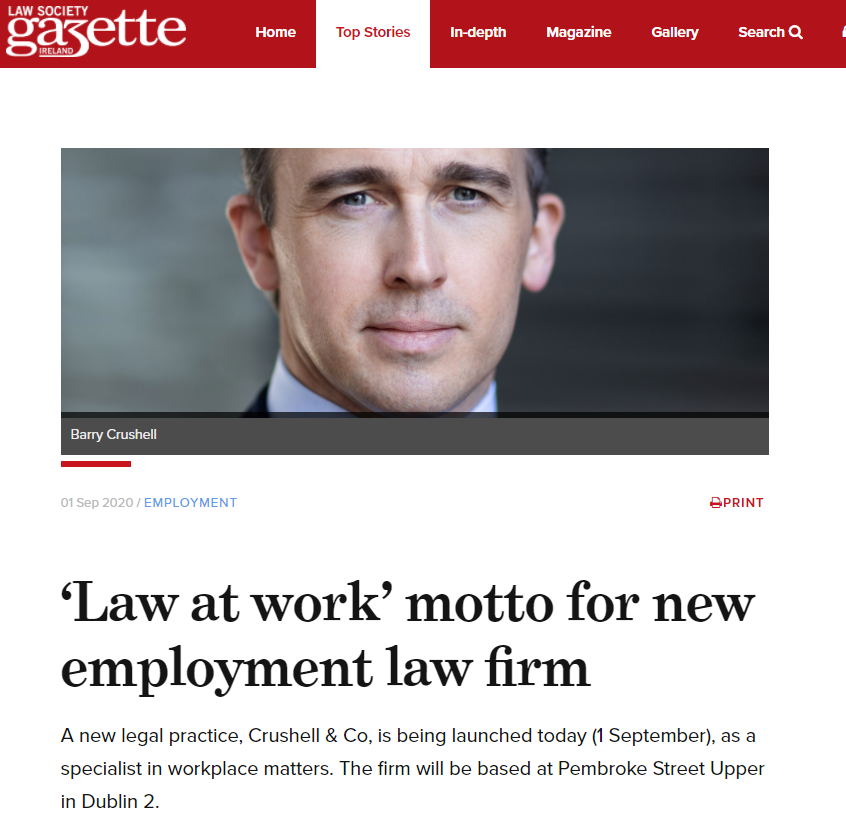Law Society Gazette feature Crushell & Co
‘Law at work’ motto for new employment law firm
Founder Barry Crushell is a former army officer, who trained with Arthur Cox and, most recently, founded the Dublin and London offices of a US law firm.
Crushell says that the new practice is being launched as the need for clear, concise, and actionable advice on employment-related legal issues is stronger than ever, because of the onset of the COVID-19 pandemic.
Disruption
Crushell & Co Solicitors aims to address the significant disruption to both society
and economy, and the profound impact on the Irish workforce, that has resulted from the virus.
“Our goal is to be a specialist law firm, focusing solely on the application of the law in the Irish workplace. Our Dublin-based solicitors will advise both employers and employees on all aspects of workplace legal and regulatory matters,” he told Gazette.ie.
“Our goal is to build a practice that can bring deep legal knowledge and expertise in servicing both employer and employee client requirements.
“By focusing on a small number of interconnected practice areas, specific to the working environment, such as employment law, data protection and employment immigration, we hope to develop a unique identity as a firm, within the Irish legal market.”
Consequences
Crushell comments that one of the positive consequences of Covid-19 is the rapid adaptation of remote working.
“The pandemic has accelerated the implementation and use of cutting-edge technology, virtual working models and paperless offices within the legal profession.
“There is now the potential to establish a law firm on a lower operating cost, to a larger market, with a more responsive service,” he said.
Methods of working
“COVID-19 has taught us that innovate methods of working are something we can achieve in the ‘here-and-now’.
“A lot of firms are questioning the way they worked pre-pandemic. We have the advantage of taking the lessons we have learned from the crisis and applying our new working systems as a core feature of how we work.
"By combining top-class practice-management systems with agile working practices, we can offer a more streamlined service, at a better rate ... that can only be a positive to our clients,” he said.
A link to the original article can be found HERE.
Share

The case of A Marketing Manager v A Drinks Retail Company (ADJ-00051379) examines the circumstances under which discrimination will have occurred, following the return to work of an employee who has availed of maternity leave, when there have been significant changes to their terms and conditions of employment.

The case of Aline Karabko v TikTok Technology Ltd (ADJ-00051600) examines the obligations employers have, under Irish law, when a request for remote work is made by an employee. As the law in Ireland currently stands, there is no right to remote work per se. This may be overcome when an individual has been guaranteed remote work in their contract of employment or remote work has been determined to constitute a reasonable accommodation in accordance with relevant employment legislation, where applicable. However, none of these exceptions applied in the present case.






